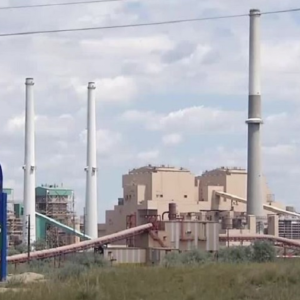Anchor Electric LLC, 1239 Wicks Ln, 794-3883, Jeremy Vance, electrical contractors, 59105
Perch – 313 N Broadway, 208-4466, Becca Garrett – Mgr, restaurants, 59101
HMJ Affordable Auto Repair, 4324 Murphy Ave, 591-1982, Howard Amos, service, 59101
Roy Edward Murray, 407 Howard Ave, Roy Edward Murray, general contractor,59101
All Weather Dogs, 13 Nimitz Dr, 927-4695, Lia Munson, service, 59101
Marissa Irene Photography, 3134 Forbes Blvd, 697-9306, Marissa Frichtil, service, 59102
Optimize LLC, 1140 Krumheuer Dr, 861-5407, Lacey Wattles, service, 59101
Bridger Cleaning Services, 1432 Chesapeake Ln, 774-454-9455, Torin Zonfrelli, service, 59101
Billings Kubota, 5548 Holiday Ave, 245-6702, Bruce Rush, retail sales, 59101
River Rat Retail, 1606 Ash St Trlr 5, 861-5800, Kaile Keil, retail sales, Ballantine, 59006
Nathan Blanding, 539 Clark Ave, Nathan Blanding, general contractor, 59101
Homestead Steaks, LLC, 300 S 24th St W, 417-793-5235, Corey Gatin, retail sales, 59102
Clearly Clean, 610 S 44th St W #2301, 861-4027, Kelly Frick, service, 59106
Oring Enterprises, 21 E Almadin Ln, 694-2430, Kemer Oring, service, 59105
Breit Roofing, 1340 Nottingham Dr, 307-337-5207, Nathan Breit, general contractors, Casper Wy 82609
Benchmark Masonry Inc, 223 H Street, 366-6257, Mandi Bailey, general contractors, Lewistown, 59457
Klean Kiwi, 5844 Kit Ln S, 801-505-3161, Denise Morrison, service, 59106
Grumpy Monkey Grass Company, 3098 W Copper Ridge loop, 794-5957, Christopher Flower, service, 59106
Force Solutions Inc, 903 Clough Ave, 801-866-5858, James Vavra, Columbus 59019
Capra Group Inc, 903 Clough Ave, 801-866-5858, Jason Ahlin, general contractors, Columbus, 59019
Promaster Contracting, 5611 Creekview, 850-8515, Luis Gonzalez Moran, general contractor, Shepherd, 59079
Bighorn Financial Inc, 937 Grand Ave – Ste B, 969-1470, Tana Weimer, service, 59102
Go-Klein LLC, 880 N 29th St, 910-286-5547, Tamara Burgecel, retail sales, 59101
Daniel Construction, 105 Jefferson St, 200-3572, Seth Daniel, general contractors, 59101
Mountain Freak Collaborative Inc, 2223 Montana Ave #103, 661-2922, Vincent Salminen, retail sales, 59101
Brennan Design, 3608 Wilkinson Ln, 799-7959, Laurie Brennan, retail sales, Great Falls, 59404
Benjamin Franklin Plumbing, 1125 Terry Ave, 534-1970, Leon Riley Jr, plumbing contractors, 59102
Divine Roots Rasta Shop, 308 Foundation Ave, 661-3912, Deann/Rodney Bargas, retail sales, Laurel, 59044
Doran Unlimited, 1734 Avenue D, 561-5678, Patrick Doran, retail sales, 59102
Tiffany Edwards, Birth & Newborn Photographer LLC, 114 N Broadway, 561-2221, Tiffany Edwards, service, 59101
AR Industrial Services, 1121 Wild Blue Ct, 672-1900, Ryan & Alina Barthuly, retail sales, 59106
John Crane Inc, 815 Cerise Rd, 847-967-2947, Nancy Kleiber, manufacturing, 59101
Prairie Cottage Montana, 8705 Cut Throat Dr, 208-4157, Diane Sitter, Misc, 59106
Sawtooth Contracting Inc, 2001 Rosebud Dr, 861-4463, Janelle Crowley, general contractors, 59102
Call o Way Fingerprinting LLC, 1140 1st Ave N #302, 281-3473, Amber and Rahim Calloway, retail sales, 59101
Career Employment Consultants, 939 N 23rd St, 219-7408, Courtney Miller, service, 59101
Colima de Mis Amores LLC, 980 S 24th St W, 431-2973, Elena Murillo, retail sales, 59102
All Star Maintenance and Janitorial, 306 1st Ave SW, 591-7195, Theodore Sopko, service, Dilworth, MN, 56529
Sean Pappas, 1517 1/2 Lewis Ave, 661-6343, Sean Pappas, general contractors, 59102
Mr Management dba Trailhead Management, 612 Charles St, 259-7020, Mark & Robert Morehaed, service, 59102
Diamond Cutz Customizing, 1540 Burlington Ave, 876-2315, Heather Schutz, retail sales, 59102
Heiko’s Bakery 2, 3429 Central Ave Ste C, 839-9012, Brandon Miller/Angela Allen, restaurants, 59102
A-Pro Home inspection Services, 3420 San Marino Dr, 561-7911, Lance Story, service, 59101
Triple G Flooring and More, 410 S 33rd St, 320-841-0834, Lea Aldridge, service, 59101
Ringo Flooring, 1385 Highway 87 E#15, 545-8045, Paul Ringo, service, 59101
Restore Masters Contracting LLC, 5991 Chester Ave, 904-717-7663, Irvin David, roofing contractors, Jacksonville FL 32217
Kutil Inc, 300 Moore Ln, 969-5448, Ryan Brownell, general contractors, 59101
Pretty Penny Cleaning, 1216 Concord Dr, 697-6204, Kaitlyn Niles, service, 59102
Bas Recoverezee, 1707 St John’s Ave, 927-2532, Jerri Anderson, service, 59102
McCleary Design Studio, 115 Yellowstone Ave, 206-661-1492, Patrick Anderson, service, 59102
Angela Foster, 2032 1/2 Gorham Park Dr, 200-2096, Angela Foster, service, 59102
Snowbros, 750 Terry Ave, 515-441-9367, Nathan Lucero, service, 59101
Fred Can Fix it, 1134 Custer Ave, 916-718-6926, Manfred Schaubmayer, general contractors, 599102
Alibi Bail Bonds LLC, 3377 Barley Circle, 593-0422, Jay Hubber, service, 59102
Reed Residential and Remodel, 644 S 29th St W, 690-1358, Nicholas Reed, general contractors, 59102
Morris Construction & remodel LLC, 644 S 29th St W, 750-2577, Sean Morris, general construction, 59102
JS Custom Designs, 1822 Island View Dr, 647-5326, Isabella Schmalz/Tyler Johnston, retail sales, 59101
Kron Construction, 4834 Central Ave, 851-1085, Tre Kron, general contractors, 59106
Art Stain, 907 Custer Ave, 598-2970, Alexandria Kenney, misc, 59102
innovation by design, 814 N 25th St, 561-8435, Anthony Olsen, service, 59101
Gerks Garage, 7935 Clarke Ave, 670-8214, Guy Gierke, service, 59106
Conquer industries LLC, 34 Custer Ave, 861-2861, Jerimi Stratton, general contractors, 59101
Jeanette Stevenson, 4215 Montana Sapphire Dr, 619-265-6233, Jeanette Stevenson, retail sales, 59106
Mikela Besel Interiors, 2214 Trails End dr, 671-5989, Mikela Besel, service, 59106
Montesla, 4100 Murphy Ave, 404-7744, Adam Smith, service, 59101
MJM Advanced LLC, 106 1/2 Broadwater Ave, 662-8720, Michael Marino, service, 59101
Chip-B-Gone, 2933 Stinson Ave, 633-1189, Frank Barnes, service, 59102
Xcel Plumbing & Mechanical , 4360 Hill Rd, 949-633-0445, Jason Hodges, plumbing contractors, 59101
ARS Consulting, LLC, 4100 Murphy Ave, 371-3235, Adam Smith, service, 59101


